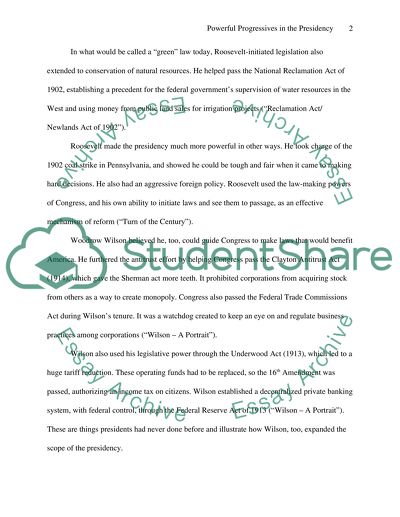Explain and discuss how Wilson and Roosevelt changed the role of the Essay. Retrieved from https://studentshare.org/miscellaneous/1514351-explain-and-discuss-how-wilson-and-roosevelt-changed-the-role-of-the-presidency-in-legislative-initiatives-and-how-they-made-the-presidency-more-powerful-during
Explain and Discuss How Wilson and Roosevelt Changed the Role of the Essay. https://studentshare.org/miscellaneous/1514351-explain-and-discuss-how-wilson-and-roosevelt-changed-the-role-of-the-presidency-in-legislative-initiatives-and-how-they-made-the-presidency-more-powerful-during.


